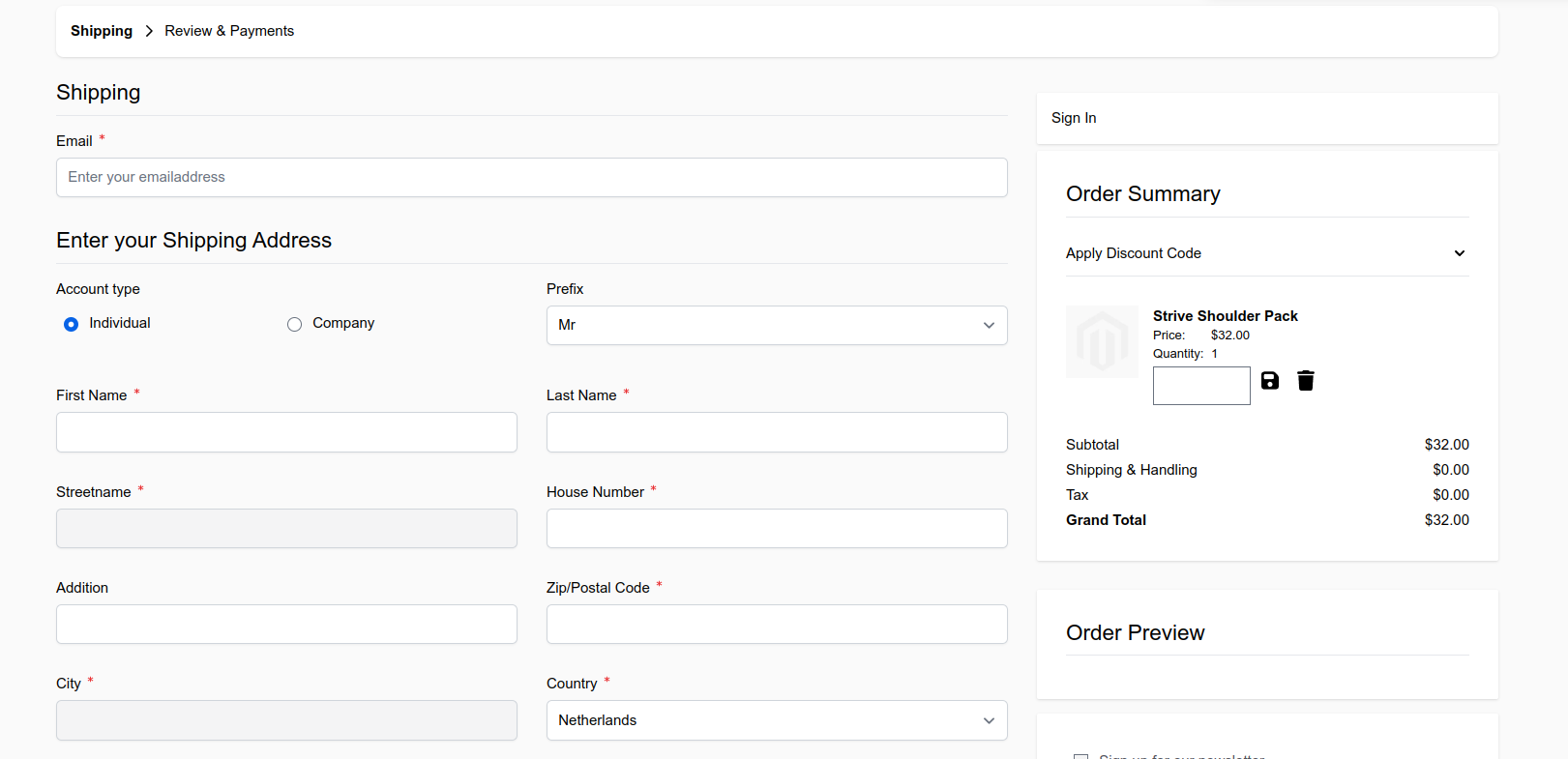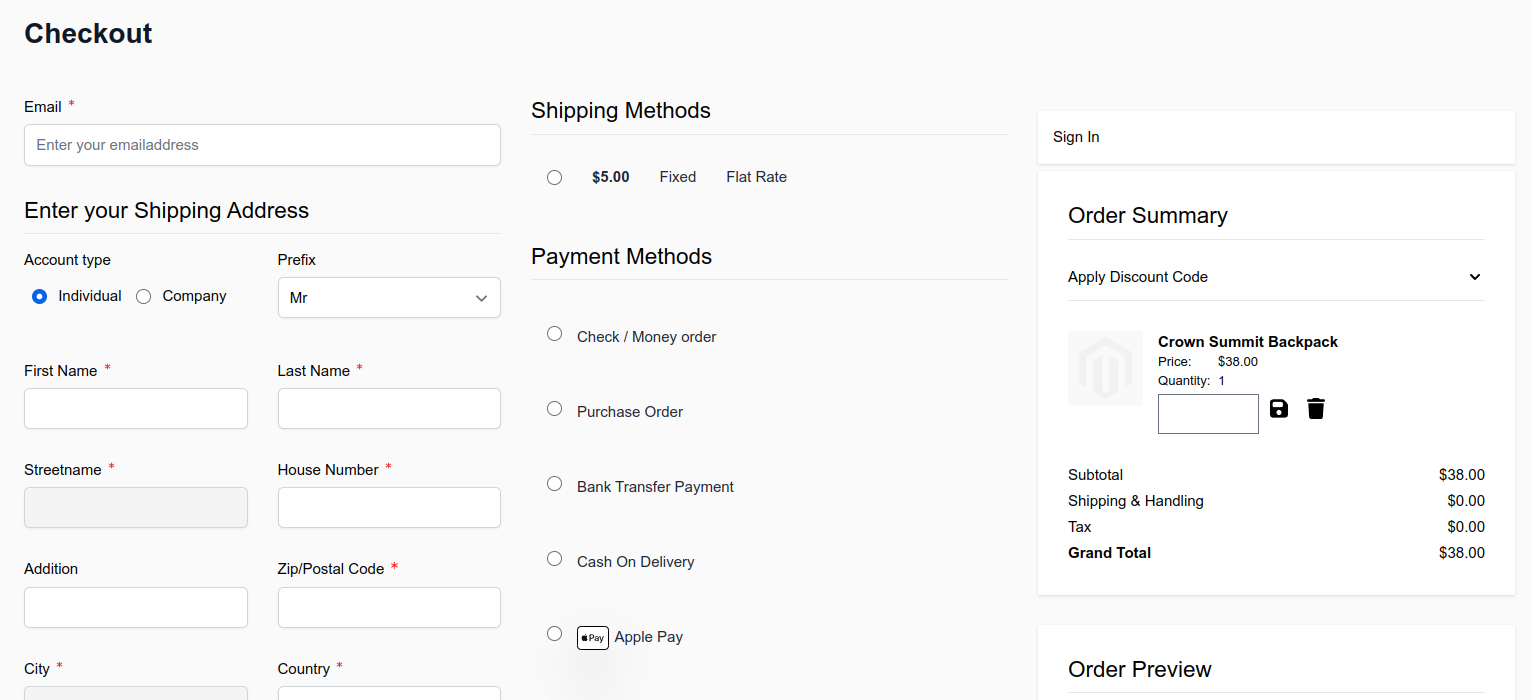LokiCheckout themes
The LokiCheckout is based on the Magento XML layout, Block classes and containers. Because it sticks so closely to the technology that Magento frontend developers now, it is quite easy to modify things: Reorder blocks, change templates, etcetera. The overall logic of steps, however, involves a lot of internal logic. This is why we ship the core with various themes.
Multi Step Checkout (default)
With the Multi Step Checkout, a customer navigates from the first step to the next step via step buttons or via a progress bar. The first step is typically the Shipping step and the last step is typically the Review & Payments step. Because each theme can be fully extended, you can add additional steps as well - in between existing steps, before any step or as a final step (provided that the chosen payment providers support this).

One Step Checkout
With the One Step Checkout, there is - duh - only one step. Address-related things are found (by default) in the first column. Payment methods and shipping methods are found in the second column. And the sidebar on the right keeps track of the information. But again, all of these positions are fully customizable.

Custom themes
For a developers, it is made easy to create their own theme. A new theme is registered through a module its etc/loki-checkout.xml file. Either the theme inherits from one of the core themes (parent) or you can build a theme from scratch. Most other logic is locked within the XML layout, with which Magento developers are very familiar.